Uni central in European particle accelerator’s strategic future
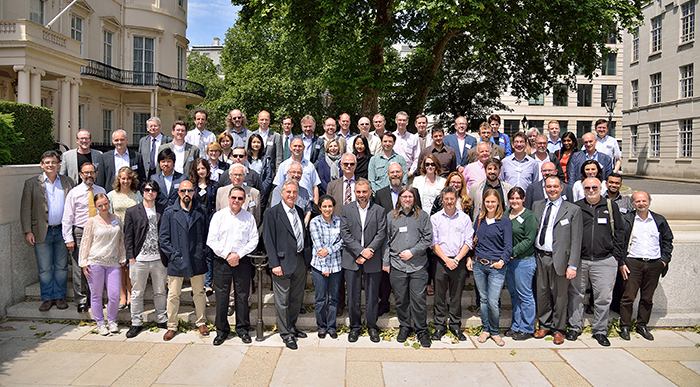 The Applications of Particle Accelerators in Europe, launched at London’s Royal Academy of Engineering, was attended by 100 scientists from Europe – with some from the USA too – and was opened by Professor Rob Edgecock (top row far right).
The Applications of Particle Accelerators in Europe, launched at London’s Royal Academy of Engineering, was attended by 100 scientists from Europe – with some from the USA too – and was opened by Professor Rob Edgecock (top row far right).
Tue, 30 Jun 2015 13:49:00 BST
Professor Rob Edgecock pioneers Applications of Particle Accelerators in Europe project aimed at raising awareness and boosting funding for accelerator research
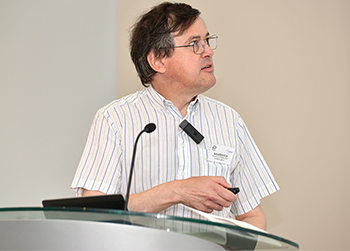 PARTICLE accelerators hold the key to breakthroughs in fields that range from healthcare to electronic technology and biofuels. Now, a professor at the University of Huddersfield – which is home to one of the UK’s most important accelerator facilities – has played a central role in convening a pan-European organisation dedicated to raising awareness and boosting funding for this important branch of science and technology.
PARTICLE accelerators hold the key to breakthroughs in fields that range from healthcare to electronic technology and biofuels. Now, a professor at the University of Huddersfield – which is home to one of the UK’s most important accelerator facilities – has played a central role in convening a pan-European organisation dedicated to raising awareness and boosting funding for this important branch of science and technology.
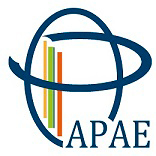 The project was launched at London’s Royal Academy of Engineering. The event was attended by 100 scientists from Europe – with some from the USA too – and was opened by Professor Rob Edgecock (pictured), of the University of Huddersfield’s International Institute for Accelerator Applications.
The project was launched at London’s Royal Academy of Engineering. The event was attended by 100 scientists from Europe – with some from the USA too – and was opened by Professor Rob Edgecock (pictured), of the University of Huddersfield’s International Institute for Accelerator Applications.
The aim is to draw-up documents entitled Applications of Particle Accelerators in Europe. These will be multi-lingual and tailored for individual European governments and their funding agencies, emphasising the specific potential of accelerators in their countries. There will also be a more detailed English language supporting document.
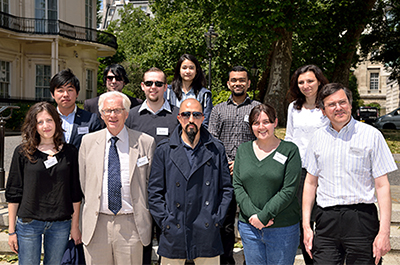
Professor Rob Edgecock (bottom row far right) is pictured with colleague Professor Roger Barlow (bottom row second left) and the rest of the Huddersfield delegates at the APAE event in London.
The project takes place under the aegis of EuCARD-2. Co-funded by the European Commission under the FP7 Capacities Programme, this is due to run until March 2017 and it co-ordinates research and development on particle accelerators. It involves 15 European countries – including Russia – and has 40 partners, including the University of Huddersfield.
Professor Edgecock is the co-ordinator of one of the work packages of EuCARD-2 and he came to realise that outreach work – spreading public knowledge of the potential of accelerators – was an important priority. He therefore proposed this project and created an International Organising Committee to carry it out. It has a membership of eight and, as well as Professor Edgecock, includes representatives of CERN, the European Organisation for Nuclear Research, which is home to the Large Hadron Collider (LHC), the world’s largest and best-known particle accelerator.
The LHC’s high profile means that there is a popular belief that all accelerators are massive and hugely costly, said Professor Edgecock, who also holds a post with Accelerator Science and Technology Centre (ASTeC) of the UK’s STFC (Science and Technology Facilities Council).
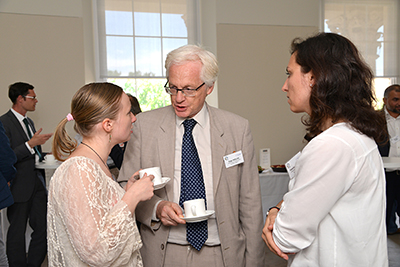
Professor Roger Barlow is pictured talking with delegates at the event.
In fact, he added, there are a great many smaller accelerators around the world and they have an increasingly important impact on everyday life. Now, he and his colleagues aim to spread knowledge of the widespread applications of accelerator science.
For example, the latest electronic devices such as smartphones rely on silicon chips that have been improved by a process named ion implantation that requires accelerators. The technology is also important in healthcare, especially for cancer treatment, and for other industrial processes.
“Also, there are a number of up-and-coming applications, especially in the environmental area. These include water treatment, the reduction of gases causing acid rain from power stations and as the production of biofuels,” said Professor Edgecock. “These fuels require simple molecules, such as ethanol, but agricultural waste has complex molecules. Accelerators can have a role in breaking these down and turning the waste into a fuel.”
Professor Edgecock was delighted by the enthusiasm shown at the launch meeting for the Applications of Particle Accelerators in Europe project. “It was the start of a process and now we need to make sure that it continues,” he said.
- The University of Huddersfield’s International Institute of Accelerator Applications (IIAA) has one of the world’s leading research facilities in its field – the Medium Energy Ion Scattering Accelerator, known as MEIS. This was previously located at the Science and Technology Council’s Daresbury Laboratories, but has now been rebuilt and rebooted at the labs of the IIAA.







